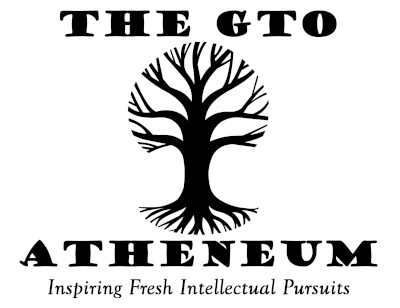This presentation/discussion will be approximately an hour, possibly longer depending on interest. The English Language Library will ask for donations to help support the library.
An audio recording of our presentation and discussion is here. A video recording of Alexander Guerrero’s talk is here.
In part 1, we discussed democracy: what it is, what it is not, and why it does not exist at the national level in most countries who use the term to describe themselves, in particular, the U.S. – and hasn’t for a long time. Please check out the description and resources for part 1, if you missed it.

This week, in Part 2 the presentation and discussion will be about what, if anything, can be done about it – on the assumption something ought to be done about it.
We will focus on possible remedies to the difficulties around practicing democracy at scale posed in Part 1. There aren’t that many possibilities. To the best of my knowledge, there are only two that are fundamentally distinct. The first is not new. We have all heard it before: reform the system we have. We will explain what stands in the way, and why many experts are losing faith in that possibility… Then we will consider something different, a proposal suggested by serious thinkers from various disciplines but most recently and prominently by Rutgers political philosopher Alexander Guerrero. It preserves the most morally defensible aspect of democracy, the participation of the governed in the making of laws that govern them, and the practical necessity of some form of representation given the size of modern states — but abandons elections. Voting, at scale, it turns out, has a proven record of failure at preserving democracy. Is there another way?
Possible solutions to the democracy “in name only” problem
Last time we focused on what was wrong with “electoral representative democracy.” This time we look at what might be done about it, but to review:
Democracy does not exist in the US.
Problems with democracy as implemented at present
- Money and the concentration of power it fosters; nothing new, but the scale today is historic.
Problems with voting, motivation: why vote when…
- Your individual vote cannot count statistically in the real world (both statisticians and historians agree, consider Bush/Gore); whatever you might have been taught in school, it can never be the case that your vote makes a difference in a national election.
- Your vote as part of a bloc might count but at the price of extreme compromise. A choice between two is as close to no choice at all as one can get without actually having no choice at all. This robs motivation, and goes a way toward explaining why voter turnout is so poor relative to the population that is supposed to be affected by the result. It undercuts the supposed gravitas we are supposed to bring to the act of voting: that it has something to do with our preferences as individuals as opposed to affiliation with a group, a team, a party, a community, some corporate body less than the full field of all those we have moral obligations to but always never just you. You don’t matter. If you matter, it is only through your sublimation or dissolution into this medium, midway between the universal and the individual… All of which makes me wonder why anyone bothers to ask my opinion when it could be inferred from my position in society…
- Your vote may amount to a gesture of frustration (possibly), it may serve a therapeutic purpose, like pounding your fist against a wall or ritualistically tossing a virgin into a volcano in the hope of propitiating the Gods… but it can hardly be politically efficacious.
- Of course, perhaps, most people don’t risk overthinking the act of voting. They do it from habit, from tradition, because of social pressure… if that is enough to motivate you, no wonder we get the governments we get.
Problems with representation
- Politicians at the federal level are not and cannot be like us.
- They are mostly lawyers.
- Mostly male.
- Mostly millionaires.
- The prevailing notion that we are being “represented” can only be described as “gas-lighting.”
Possible solutions
- Reform: though it may have helped short term in the past (in the late 19th Century, in the 1920s), present prospects for meaningful reform seems dim because the underlying causes of corruption have magnified beyond bandaids: major surgery — and, yes, difficult and dangerous Constitutional surgery, is called for. Otherwise, we are asking the wolves to redesign the hen house. (As I write, the Democratic and Republican parties are vying with each other to see who can be the most corrupt. They are conducting an orgy of gerrymandering.)
- Lottocracy (aka sortition): We are going to focus the discussion on a solution that preserves democracy but reimagines representation and ditches elections. Thereby, addressing the problems listed above…
Will it work? Is it hopeless? Take a look at the references on the lottocratic way of doing democracy…
More on lottocracy:
- Lottocracy: Democracy Without Elections, Alexander Guerrero, Oxford University Press, 2024.
- “Alex Guerrero | Lottocracy: A New Kind of Democracy”, Wolf Humanities Center, 2020-1.
- “Reimagining Democracy as Lottocracy | Alexander Guerrero (With Travis Timmerman),” (podcast interview).
- “‘Democracy Without Elections’: Alexander Guerrero in conversation with Michael Hannon,” (podcast interview).
You are not expected to agree with anything said in the presentation; in fact, civil, honest, and thoughtful reactions, not consensus, are the most we should expect from a real philosophical discussion. That’s how we approach understanding. But, if you are not comfortable questioning assumptions we have all grown up with, this event may not be for you.
I have written extensively about ideas of governance. If the topic interests you, see the five part discussion, “Magical thinking about democracy,” which, along with related writings, can be accessed at pph.aporia.net.
– Victor Muñoz
Guanajuato / Seattle

